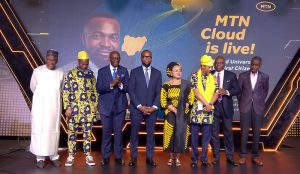In the evolving story of Nigeria’s technological rise, few names shine as brightly as Leo Stan Ekeh—a visionary, disruptor, and one of Africa’s most impactful digital entrepreneurs. Among his many game-changing accomplishments, one quiet yet historic milestone stands out: he was the man who put the naira sign (₦) on the computer keyboard—giving Nigeria’s currency a dignified presence in the global digital ecosystem.
For most Nigerians today, typing the ₦ symbol is second nature. But before Africa’s digital revolution took shape, the naira existed only as an afterthought on global platforms. While the dollar ($), euro (€), and pound (£) symbols were standard on keyboards and software worldwide, Nigeria’s currency was conspicuously absent—echoing how African contributions were often overlooked in tech development.
Leo Stan Ekeh changed that narrative.
A Symbol of Sovereignty, A Statement of Digital Identity
As the founder and chairman of Zinox Technologies, Nigeria’s pioneering indigenous computer manufacturing company, Ekeh was never just assembling machines—he was engineering national pride. In the early 2000s, while developing Zinox’s first line of Nigerian-made computers, Ekeh made a bold, symbolic request: include the naira symbol on the keyboard.
To many, it seemed like a small design tweak. But for Ekeh, it was a powerful statement. The inclusion of the ₦ was about representation, dignity, and sovereignty. It sent a message that Nigeria would no longer be an afterthought in the global tech conversation.
Today, thanks to that foresight, the ₦ is recognized globally—integrated into coding languages, accounting software, and digital financial platforms.
More Than a Tech Mogul—A Nation Builder
Ekeh’s story is not just about keyboards—it’s about nation-building through technology. From pioneering Nigeria’s first internationally certified computer brand to leading digital transformation projects across the continent, he has continually pushed boundaries.
His investments in digital literacy, infrastructure, and education have empowered thousands of young Africans. Ekeh was among the first to recognize that Africa’s greatest resource is its youth—and that with the right tools, they can compete on a global stage.
Innovation Rooted in Culture
In an era where tech success is often measured in apps and algorithms, Ekeh’s legacy is different—and deeply profound. He understood that true innovation must reflect culture, identity, and national pride.
The ₦ symbol may not have made international headlines at the time, but within Nigeria, it marked a turning point. It gave the naira a voice and reaffirmed Nigeria’s rightful place in the digital age.
As Ekeh once said:
“Technology is the future, but for Africa, it is also freedom.”
Conclusion: The Man Who Gave the Naira a Voice
In the annals of Nigerian innovation, Leo Stan Ekeh stands tall. His influence extends far beyond hardware and software—his vision has shaped how Nigerians see themselves in a connected, global world.
The ₦ symbol on your keyboard is more than a character.
It is a symbol of pride, a mark of inclusion, and a reminder that Africa belongs at the table of global innovation.
Because one man dared to ask: “Why not the naira?”
Don Pedro Aganbi is a technology media strategist, writer, and convener of the Titans of Tech Awards.
With a keen eye for innovation and leadership in Africa’s digital economy, he tells compelling stories of visionaries shaping the continent’s future through technology.





















